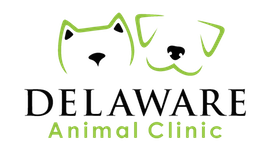
The Thanksgiving holiday is nearly upon us, with its smells of turkey roasting and sounds of happy chatter as friends and family gather to celebrate. Uncle Bob looks at Rover’s begging puppy eyes and ca’t help but give him the turkey leg bone to chew.
Then cousin Sally decides she doesn’t like the sage stuffing, so she tosses some under the dining table to a grateful Miss Kitty. The dishes are cleaned, football is over, and company goes home. Everything seems peaceful until later that night when Rover’s belly starts hurting and Miss Kitty vomits on the rug.
Don’t let your Thanksgiving holiday get ruined by an emergency visit to your veterinarian! Taking a few precautions can keep your pet happy and healthy this turkey day.
Never feed bones to your pet. Bird bones are especially dangerous because they are brittle and easily splinter leaving sharp ends. The bone pieces can get stuck in the esophagus or GI tract and cause irritation and obstruction. The sharp points can pierce through the wall of the stomach or intestines and cause fatal internal bleeding. A punctured intestine can also result in peritonitis – a potentially deadly infection that occurs from spillage of GI contents and bacteria into the abdomen.
Giving table scraps to your pets is also a no-no. Foods that are rich or fatty can trigger inflammation of the pancreas, a disese called pancreatitis. The pancreas makes enzymes that are released into the intestine to aid in the digestion of food. In pancreatitis, these enzymes are activated early and begin to digest the pancreas itself. Signs include vomiting, diarrhea, abdominal pain, depression and decreased appetite. Pancreatitis requires aggressive treatment and can be fatal.
Sage and other herbs are frequently used in Thanksgiving recipes. These herbs contain essental oils and resins that can be toxic to pets, causing GI distress and depression of the central nervous system. Cats, in particular, can be especially sensitive to these essential oils.
Even foods that are no high in fat or richly seasoned can cause stomach upset, abdominal discomfort and diarrhea. It is best to continue to feed your pets their regular diets during this holiday.
Watch the garbage. All sorts of tempting, but dangerous, treats are beckoning to your pet from the trash can and counter tops. Aluminum foil, plastic wraps, turkey bages, strings, and other items can cause choking or intestinal obstruction if swallowed. Emergency surgery may be required to remove these foreign objects – which is no one’s idea of a happy holiday tradition!
It is easy for all those extra feet in the house to accidentally kick over or spill your pet’s water bowl. Be sure to check it frequently to ensure there is always plently of fresh water available.
And finally, remember that not every pet is a social butterfly. The Thanksgiving festivities can be overwhelming to our furry friends. Make sure they have a quiet refuge to which they can retreat and observe them carefully for signs of stress.
